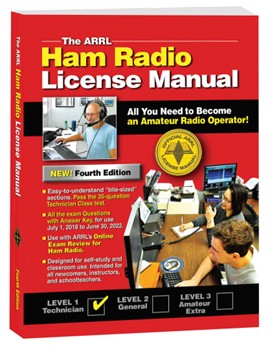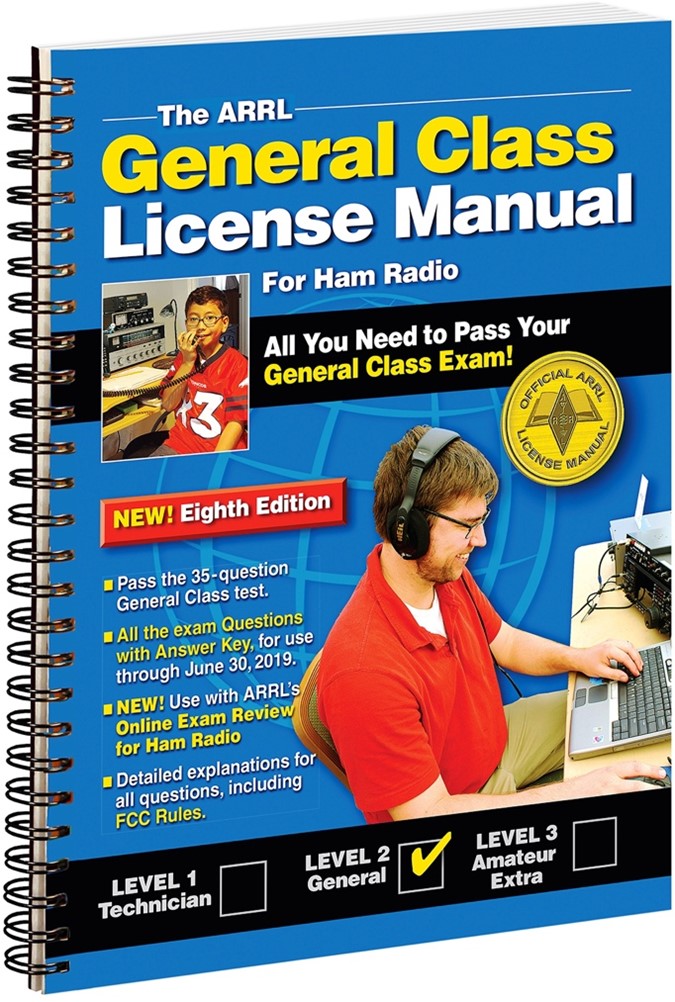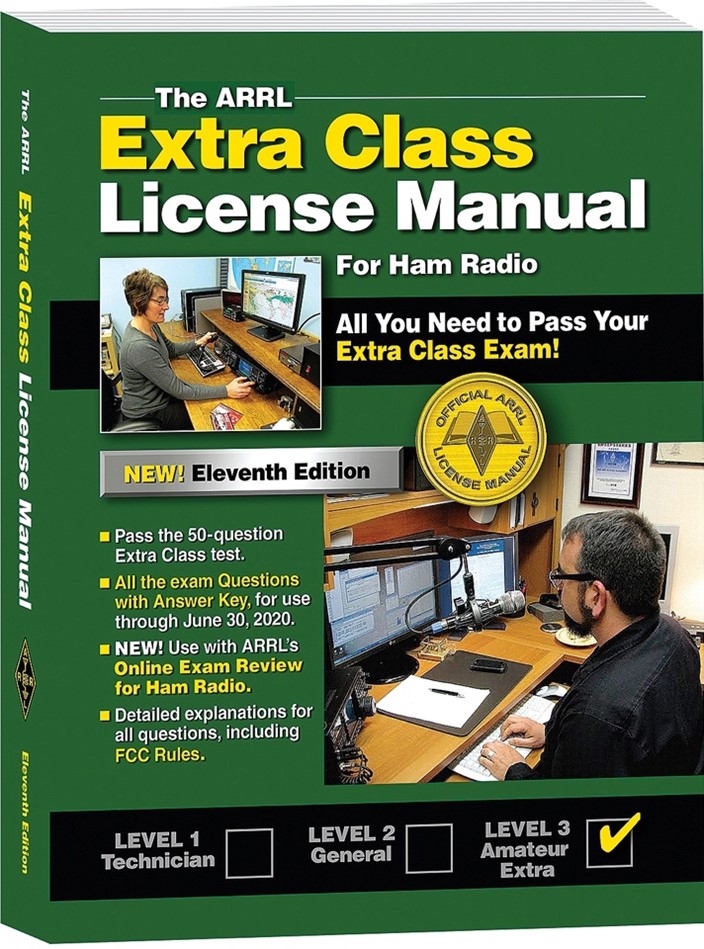(U.S.-Based Only)
Getting or upgrading your ham radio license can sometimes seem overwhelming to those who aren’t familiar with the information or process. Executing an internet search pulls up many different ways to learn the material, participate in a class, or take an exam.

The Federal Communications Commission (FCC) issues three levels of amateur radio licenses. Each license level has a more involved test than the previous one by requiring more knowledge and skills. Stepping up a license level allows those who pass to transmit on more bands, frequencies, and power levels.
The three license classes, from entry-level to highest, are:
- Technician–All UHF/VHF Amateur band privileges with some HF privileges, including voice, CW, and digital modes on 10 meters
- General–All VHF/UHF Amateur bands and an extensive upgrade of HF privileges (10 through 160 meters)
- Amateur Extra (also referred to as Extra)–All Amateur frequency privileges (voice, CW, and data frequencies) are available within the confines of FCC allowances
Since the Technician class has the most limited privileges, a lot of hams will quickly try to achieve the General level. There are some people who still hold past levels of licenses (e.g., Novice, Advanced). As long as these licenses aren’t expired, they are grandfathered into their own privileges. Since 2007, the FCC has not required Morse code proficiency to obtain a ham radio license.

So, what is the best way to study for the test? There are online classes for a fee. Some of these programs are very good and are so confident that they offer a money-back guarantee if you don’t pass. You can buy a license manual and study on your own or purchase one of several very fine apps for iOS or Android.
If you don’t want to spend the money, you can find the question pool for free online, check out the books from the library, or find local clubs or organizations that offer free classes. For example, below are some available options from where I live in Greene County, Ohio, and neighboring Montgomery County.
The Greene County Amateur Radio Emergency Service usually holds amateur radio license classes each spring and fall. The courses are supported by the Bellbrook Amateur Radio Club, the Upper Valley Amateur Radio Club, and the Xenia Weather Amateur Radio Network–all groups in Greene County. There is no charge for the classes, which are held from 7 to 9 p.m. each Sunday in specified locations for each level. A test session including all classes of licenses is given at the end of the sessions by the Greene County Volunteer Examiner (VE) Team—a Laurel Volunteer Examiner Coordinator (VEC).
The Laurel Amateur Radio Club Volunteer Examiner Coordinator, also known as the LARC VEC or Laurel VEC, is one of 14 VECs that have entered into an agreement with the FCC to serve as a VEC.
Volunteer Examiners provide an invaluable service to the amateur radio community. Since its inception in 1984, the Laurel VEC has taken great pride in the fact that it has never charged a fee for its services. Read more about the Laurel VEC here.

The FCC now charges a fee to issue an initial license as well as for other FCC services. The fee must be paid directly to the FCC, not to an organization or exam team. You can view FCC application fee instructions here.
ARRL exam sessions are conducted by volunteers working under the direction of the FCC and a VEC. There will likely be a charge for taking the exam. The exam fee is set by the VEC and is usually $15 or less. Contact the exam session administrator to determine the fee that applies to the exam session you plan to attend, the documents required, and to verify the session date and time. VEC organizations may have different policies regarding candidate procedures and requirements.
The ARRL covers the one-time $35 FCC application fee for new license candidates younger than 18 years old for tests administered under the ARRL VEC program. The $35 FCC application fee is reimbursed after the ARRL VEC receives the completed reimbursement form and the new license has been issued by the FCC. The reimbursement check is mailed to the fee payer. Also, candidates younger than 18 years old pay a reduced exam session fee of $5 to the ARRL VEC VE team at the time of the exam. Read here about what to bring to an exam session.
Questions? Share them in the comments below or email me at KE8FMJ@gmail.com

